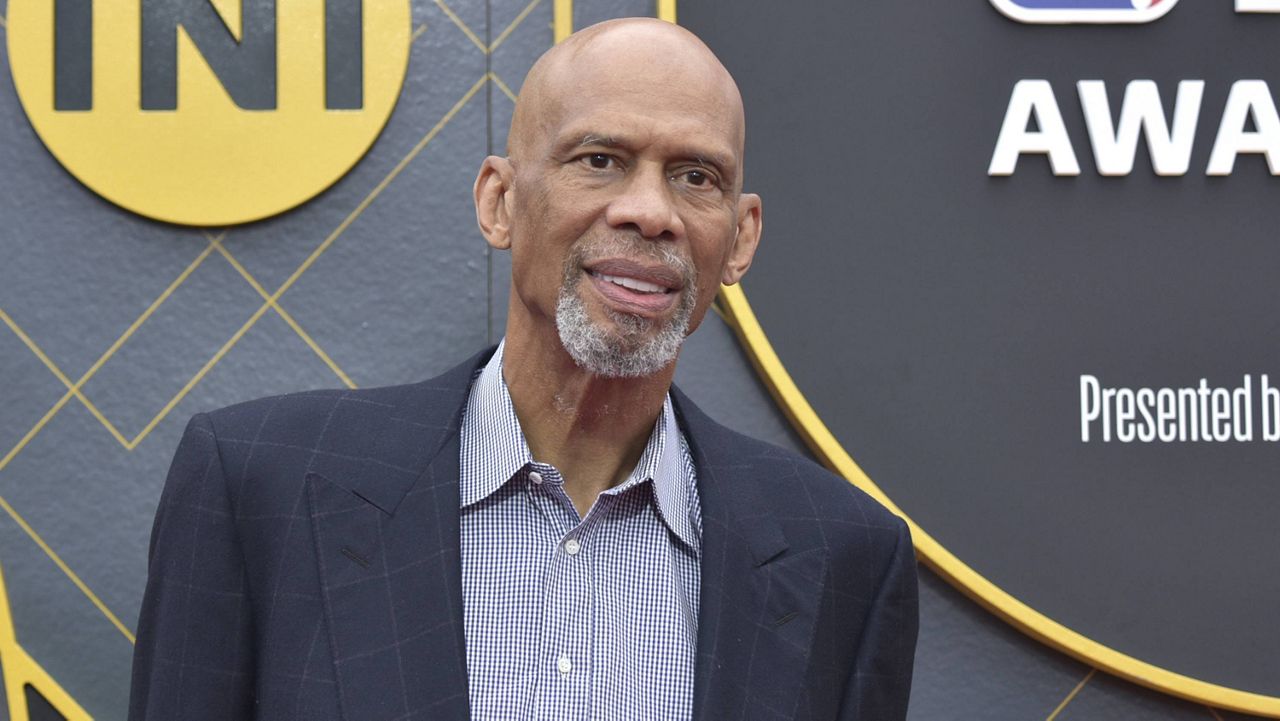Lakers legend Kareem Abdul-Jabbar has revealed in an essay that he beat prostate cancer, although the larger point he sought to make was that inequality in the health care system is having devastating effects on the Black community.
What You Need To Know
- Basketball Hall of Famer Kareem Abdul-Jabbar revealed in an essay for WebMD that he beat prostate cancer
- The larger point he sought to make was that inequality in the health care system is having devastating effects on the Black community
- Abdul-Jabbar wrote that "systemic racism" in the health care system must be addressed
- The Lakers legend said the coronavirus pandemic has shined a spotlight on the problem
The 73-year-old basketball Hall of Famer only made a passing mention of his battle with prostate cancer in an article for WebMD.
“I’ve had prostate cancer, leukemia, and heart bypass surgery,” he wrote.
Abdul-Jabbar’s leukemia and quadruple bypass surgery had already been known, but not the prostate cancer. He did not provide any details, such as when he was diagnosed.
Abdul-Jabbar said he was fortunate to survive all those challenges “because my celebrity has brought me enough financial security to receive excellent medical attention.”
“No one wants an NBA legend dying on their watch. Imagine the Yelp reviews,” he joked.
“But while I’m grateful for my advantages, I’m acutely aware that many others in the Black community do not have the same options and that it is my responsibility to join with those fighting to change that,” the six-time NBA champ wrote.
He noted that Black Americans are prone to diabetes, heart problems, obesity and cancer as well as “a wide spectrum of health threats built into the foundation of American society as solidly as steel girders holding up a bridge.”
“Most people know this is true, though some will deny it because they fear removing those rusty girders will cause the whole bridge to collapse,” Abdul-Jabbar wrote. “The truth is that those girders are already malignant with rust and will eventually collapse if we don’t address the underlying rot of systemic racism.”
He drew parallels to the Black Lives Matter movement, which focuses on police brutality.
“However, the more insidious and damaging threat to the health, lives, and economic well-being of Black Americans is a health care system that ignores the fact that, though they are most in need of medical services, they actually receive the lowest level,” Abdul-Jabbar wrote.
He said the coronavirus pandemic has shined a spotlight on the inequality in the system.
“The virus has hit the African American community at a much higher and more devastating rate than it has the white community. At the same time, they receive a lower standard of care. The death rate for Blacks is 3.6 times higher than for whites.”
Abdul-Jabbar added that he has teamed up with UCLA to become a health ambassador so he can try to help Black Americans receive health information that could save their lives, “just as it had saved mine.”



